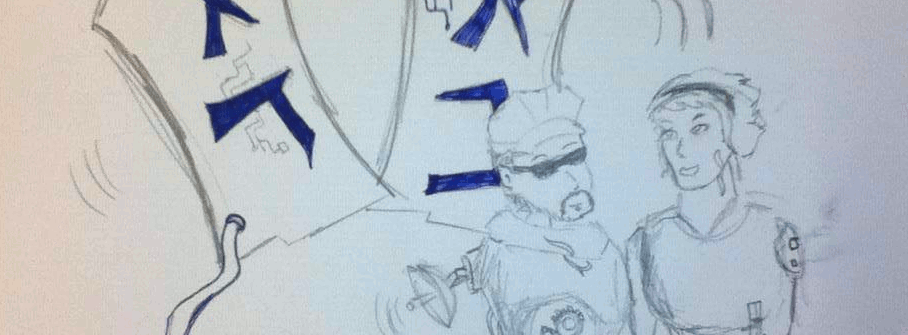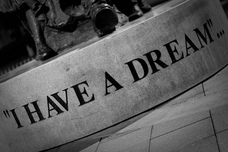A bit of Torah for you, dear readers...
This week's parsha is Miketz, in which, among other things, Joseph (of Technicolor Dreamcoat fame) interprets Pharaoh's dreams, rises to power, saves the nation, and is confronted by his family.
The Haftarah is also amazing - about the wise Solomon and the baby dispute.
But that Haftarah is almost never read because Miketz coincides with Chanukah. So we read a special Haftarah which has to do with lights and menorahs and the Temple and all kinds of fun stuff.
I would like to take a moment and talk about Joseph, dreams, and networks.
Joseph has had his share of ups and downs. He's favored by his father, but scoffed by his brothers; he gets superior treatment, but winds up in an Egyptian jail. But Joseph is a unique, persistent character and doesn't let his confining walls hold in his talent. He begins interpreting dreams for his fellow prisoners and word eventually reaches the Pharaoh that he's got someone very special locked up in his dungeons. And the rest is history... Joseph is called to Pharaoh, interprets his dreams, gets appointed viceroy, and saves the land from famine.
So what does this parsha imply for Jewish professionals working as network weavers in the 21st Century?Well, lots of things...Here are a couple of lessons I've drawn from this text (and I would love to hear yours):Pharaoh found Joseph in jail. So? Your next big idea could come from anywhere, and anyone. When we talk about social capital (the trust, the things we do that hold us together in relationships, communities, and networks) we can either bridge or bond (or both). In a nutshell, bonding brings together folks with things in common, like a synagogue sisterhood. Bridging brings together more varied perspectives or types of people, like at an interfaith event. Really we're always doing both; bridging and bonding are like a continuum (and it's all a matter of perspective, anyhow - how different are we, really?). When Pharoah found Joseph, that was radical bridging.
Where are we building these kinds of bridges? Do we recognize the potential when we see them?Not only that, both Pharaoh and Joseph listened. Either side could have been completely disregarded for any number of reasons. Joseph could have used his influence to undercut Pharoah. Pharoah could have dismissed Joseph's talents as irrelevant or silly. But somehow they found a way to trust one another.
When we bring new voices to the table, are we listening? Are we kicking off our relationships on a foundation of trust AND mutual benefit?They connected, they listened, they acted. The famine was seven years down the road! But they had a vision, developed their system, and implemented it, step by step, to save the country.
Do our partnerships end with words, or do we take action?Finally, there's something juicy in here about the power of dreams and networks. Network-weavers, cheesy as it may sound, are dream-weavers (cue the 80's soundtrack). Our job is to listen, interpret, connect, and empower our networks to action. We are part-Pharaoh in recognizing the Josephs, part Joseph in listening and interpreting, but mostly we are the shomrim (watchers? keepers? guardians? there's not really an English translation I'm happy with) of the web that allows those players to connect. Those with dreams, those with the power to interpret, those with the drive to action.
Here's a quote from the brilliant NetworkWeaving blog:Network weavers do three things.
1. They constantly learn about the assets and opportunities in the network. This includes the tangible and intangible, shared and isolated, well-engaged and unengaged talents, resources, funds, space, expertise, and knowledge available within the network.
2. They constantly learn about the dreams of people in the network. These are the passions inspiring what people are striving to create and pursue.
3. They constantly introduce and connect people with complementary dreams and assets.We are dream-weavers.
One last thought - the "ketz" bit of
Miketz usually means "end." The opposite of a beginning. But of course the Torah is without beginning and without end... Another word for
ketz is "edge" - a possible ending, something a little scary, but also the potential for beginning something entirely new. I like that.
What other lessons can we draw from this parsha?Do you see network weavers as dream-weavers? How has this connection played out for you in your work? 




 RSS Feed
RSS Feed